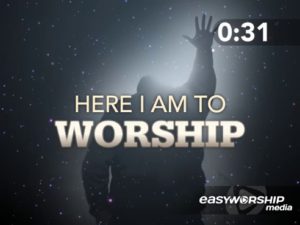Someone completed the sentence above with: “lawyer.” I wonder what the reaction would be to that persuasion. Would lawyers take it personal?
Last week I asked our folks, “Which sounds worse to God, ‘I worry sometimes,’ or ‘I don’t trust You.’?”
When you arrive at 2 Chronicles 16:1-9 you encounter an important OT narrative that teaches us about sanctifying faith. The paragraph also contains one of my favorite verses in the OT. Verse 9 reads,
“For the eyes of the Lord run to and fro throughout the whole earth, to give strong support to those whose heart is blameless toward him…” (stop there if you’re including this reference in your correspondence to parishioners; the last part of the verse is a downer: “You have done foolishly in this, for from now on your will have wars.” Yikes!)
I often word a benediction with the KJV of the middle of v. 9: “May our Lord show Himself strong in your life…”
Verse 1-9 divide very well like this:
- The moment of trust (v. 1)
- The wrong kind of trust (vv. 2-6, 9b, 10, 12)
- The right kind of trust (vv. 7-9a)
My title was: “Direct our hearts toward you, Lord”: So We Receive Your Strong Support.
The words of the prophet in vv. 7ff. hit us hard whenever we are tempted not to trust our Lord’s ability to provide provision, protection, or direction in life. Verse 8 reminds us of those times when we did trust our Lord and He did deliver, despite the odds being against us.
And then, there’s that wonderful description of our Lord’s vision, His eyes darting in every direction waiting to “give strong support to those whose heart is blameless toward him.”
The last line provides a wonderful opportunity to describe the Christian life at its finest. It’s why I love preaching the OT. Here is the place to define and describe sanctifying faith.
And, of course, there was only one time in history when God’s eyes turned away from His Son and because He did we can be assured that His eyes will not turn away from us whenever we seek Him by faith.
I hope you’ll preach this some day for the sake of His glory in the church and in Christ Jesus (Ephesians 3:21).
Randal








